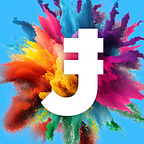The Transformation Of Africa Into A Web3 Powerhouse
Africa is driving a surge in crypto trading volume, fueled in part by increased VC funding and a progressively friendlier regulatory environment. Given the advantage that blockchain offers to improve on legacy infrastructure, African users and builders are positioned to lead the charge in web3.
Africa’s Q1 2022 in numbers:
TechCabal’s year-end report shows that total VC funding in Africa increased by 150% from Q1 2021 to Q1 2022, totaling $1.5 billion raised by 100 startups from 14 countries. In Q2 2022, African startups raised $1.26 billion across 180 deals. Growing investor interest in African venture deals by strategic investors will position the continent for a decade of strong growth.
One such deal was AfricaDAO — an Africa-focused investment fund backed by BitDAO. AfricaDAO aims to accelerate web3 growth and adoption in Africa. With its three-pronged approach, AfricaDAO will leverage its unique international and trans-African social resources to bootstrap real-world blockchain solutions in Africa.
Cryptocurrency adoption is exploding:
According to LocalCryptos, Africa’s P2P trading volume grew 75% in July 2022, with Kenya leading the charge. Bitcoin leads in trading volume with M-Pesa as Kenya’s preferred fiat to crypto on-ramp method. In the last 90 days, BTC trading volume tracked by LocalCryptos has increased by 130% and 22% in Nigeria and South Africa, respectively.
A study from CoinGecko utilizing Google Trends found that Nigerian retail interest in cryptocurrency has been the highest in the world since April 2022. Nigeria currently has the largest cryptocurrency traded volume outside the United States, according to Paxful.
Additional real-world use cases:
Earlier this year, the Nigerian stock exchange announced a plan to start a blockchain-powered platform geared toward younger investors. The exchange plans to enable capital market transaction settlements using blockchain technology. Integrating blockchain offers increased transparency and is a step towards real-time settlements. Interestingly, this came after the Nigerian Central Bank ordered commercial lenders to halt cryptocurrency transactions and operations in early 2021.
Not too far from Nigeria, the Democratic Republic of Congo is opening oil and gas licensing auctions to crypto and carbon firms which are expected to keep fossil fuels in the ground and sell preservation-based carbon credits instead. These carbon credit tokens will then be exchanged on blockchain-powered marketplaces and retired by companies to offset their carbon emissions. Instead of extracting oil on the land, these companies aim to stop exploration and offer alternative long-term revenue streams. With blockchain, governments now have more avenues to preserve natural wealth while still earning revenue.
Central Africa Republic (CAR) has also announced an ambitious plan toward building a holistic metaverse environment. After becoming the second country in the world to adopt Bitcoin as legal tender, CAR plans to tokenize real-world assets such as natural resources. This grants CAR to represent its resources on-chain, providing easy access to foreign investors and boosting market liquidity.
Supportive regulatory environment for cryptocurrency:
The South African Reserve Bank recently advised banks not to cut-off crypto asset providers. The move indicates a shift towards a crypto-friendly regulatory environment in South Africa, compared to the lack of intervention when South African banks shut down accounts of crypto exchanges (like Luno and VALR) and automated cryptocurrency arbitrage services. While SARB acknowledges legitimate reasons for banks to implement protective measures, the regulator encourages banks to implement adequate risk assessments in response to money laundering and terrorist financing issues.
In June 2022, The Central Bank of Nigeria (CBN) and Africa Fintech Foundry (AFF) launched an eNaira hackathon open to all Africans. The hackathon, themed ‘eNaira — Africa’s Gateway to a Digital Economy,’ aims to bring talented African entrepreneurs and thinkers to develop innovative solutions that will drive the adoption of the eNaira. The top 10 startups will join the AFF Accelerator program, with some receiving funding and support from CBN and AFF.
This news came after the Nigerian government released a set of new rules for virtual technologies, which marked a fundamental shift in their approach towards cryptocurrencies after last year’s ban. The new rules aim to contribute more transparency to the market.
Crypto adoption in Africa has grown 12x in the past year, and yet, interest in cryptocurrency among young Africans is showing no sign of slowing down. At the frontline of the revolution, startups, governments, and industry participants such as Jambo and AfricaDAO are working together to bootstrap the continent’s next batch of web3 unicorns.
About Jambo
Jambo is building the Web3 super app that will educate, bank, and entertain the continent. Jambo aims to pioneer the largest, most influential Web3 user acquisition portal across the continent and serve as the bridge between Africa and applications from around the world seeking to tap into the African market. The opportunity here is immense. We have a long-term vision of realizing financial prosperity for Africans.
Keep up with Jambo’s latest developments and announcements:
